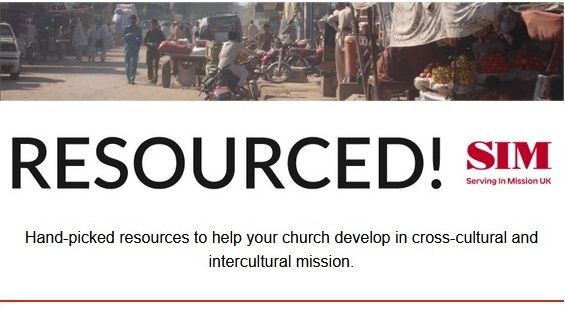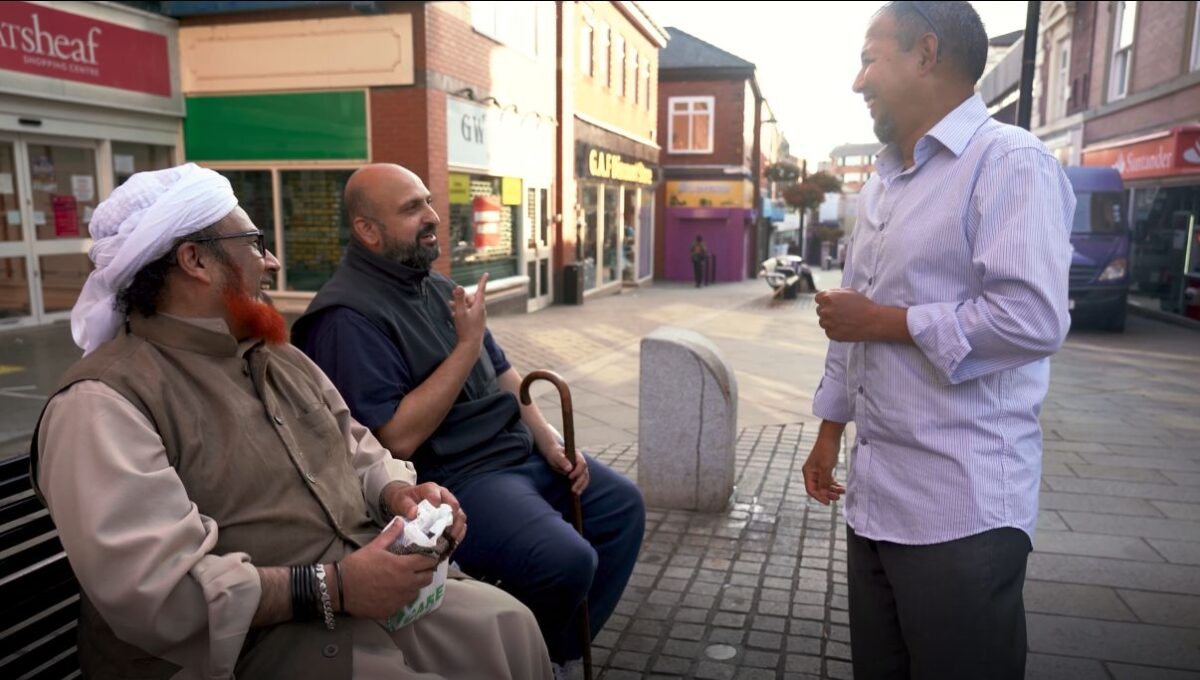One of my SIM colleagues working with churches in Manchester recently spent a week amongst the Arab-speaking communities. During one conversation, he was stopped in his tracks by one man who asked, ‘Are you trying to evangelise us?’
‘I’d like you to know about the Jesus of the Bible,’ he replied.
The man’s next words were direct and to the point: ‘Well, you don’t have to do that – we’re united and together as a community and that’s a dangerous thing for you to do here.’
That was just one response amongst many. We all know friends and neighbours – from all kinds of faith backgrounds – who are open to discussing the person and teachings of Jesus, but it’s hard to know how to respond to open opposition and hostility to Christianity.
Our Mapping Intercultural Mission research into how churches and ministries engage interculturally in communities in both Leeds and Manchester, confirms that some churches struggle to know how to engage with their multicultural and diverse neighbours in 21st Century Britain.

Participants in Manchester were asked what they felt were some of the greatest obstacles to mission where they were. People believed a ‘lack of confidence and understanding’ was one of the biggest barriers to engaging communities without Christ.
This isn’t a new topic for the church to grapple with. In Acts 10, God’s revelation to Peter and Cornelius sent ripples through the early church.
Only when he witnessed non-Jews hearing and receiving the good news of Jesus, did Peter say, ‘Truly I understand that God shows no partiality, but in every nation anyone who fears him and does what is right is acceptable to him.’ Acts 10: 34-35
Yet even afterwards, it took time to recalibrate Peter’s practice and in Galatia, it took Paul to confront the gap between Peter’s conviction and treatment of others.
Peter’s fear of those in the cultural majority, combined with their sense of supremacy and pride, had left him out of step with the gospel.
Obeying everything Christ taught amongst our communities, not only fulfils the Great Commission in us, but also results in diverse churches, giving and receiving discipleship from each other.
This requires churches to move beyond fear and anxiety to trust Jesus Christ in humility and for us to keep in step with the gospel in how we relate to one another.
Otherwise, the combined effect of internal anxiety and an absence of knowledge will lead to a silent church that’s inactive in Christ’s mission.
That’s why we’ve loved working with Crosslands Training to launch a foundations course in intercultural mission. It’s an introductory course for regular church members, designed to enable church communities to reach out in intercultural ministry in their local context to send and receive people cross-culturally.
As one church leader put it during a recent coaching session: ‘Intercultural churches are not a blueprint, they are an outcome of living out Jesus’ teaching.’
Exalting Christ above all other identities will reform and transform ourselves and our churches. Indeed, engaging all kinds of people in our communities means setting a course of self-sacrifice in the service of others.
We must never lose sight of God’s loving forgiveness of us. When we know the extent to which God has loved us in Christ then we have the essential ingredient for learning and testing how he wants us to treat those who are different to us – even in face of hostility.
Therefore, I urge you, brothers and sisters, in view of God’s mercy, to offer your bodies as a living sacrifice, holy and pleasing to God – this is your true and proper worship. Do not conform to the pattern of this world, but be transformed by the renewing of your mind. Then you will be able to test and approve what God’s will is – his good, pleasing and perfect will.
Romans 12:1-2
It’s an exciting time to be alive in Britain today – the diverse church has the opportunity to embrace Jesus’ call to people from every nation to follow him on the way of the cross.
Paul writing to the church in Corinth, says they are ‘called to be saints together with all those who in every place call upon the name of the Lord Jesus Christ, both their Lord and ours’. 1 Cor 1:2

Together, as the global body of Christ, the apostle calls us to follow his example of self-sacrifice in the interests of the rescue and restoration of others.
By Steve Smith, SIM UK Director
- Sign up for RESOURCED! each quarter here for tools and ideas to help your church grow in cross-cultural ministry.


